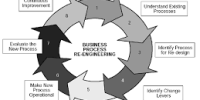Payments are still a fragmented market throughout the world: depending on where you purchase or sell anything (and whether you sell online or offline), you’ll have multiple “standard” payment methods, currencies, and settlement schemes, among other things. Today, Kevin, a startup that is taking one piece of that puzzle — payments made from account to account, an alternative to payment card payments that avoids those rails — and making it easier and more ubiquitous to use through the development of a whole new set of payments infrastructure that integrates directly with banks, is announcing a significant Series A of $65 million to double down on its business after some strong initial traction.
It has already signed up 6,000 merchants in 12 European markets, first with electronic point of sale and more recently with physical point of sale terminals. Its goal is to be accepted as a payment option by the end of this year on 35 percent of European electronic point-of-sale terminals, and then 85 percent the next year, “just like any card scheme,” according to CEO Tadas Tamosiunas in an interview. The United Kingdom will be later this year, but by the end of the year, 35 percent of European EPOS terminals will be installed, followed by 85 percent the next year, in the same manner as the card program.
Accel is leading the round, which also includes Eurazeo and prior investors OTB Ventures, Speedinvest, OpenOcean, and Global Paytech Ventures. Some of the investors include Harry Stebbings of 20VC, Ilkka Paananen, CEO and co-founder of Supercell, and Amitabh Jhawar, former CEO of Venmo. Kevin has now raised $77 million and is keeping its valuation a secret. Lithuania-based Kevin was co-founded by Tamosiunas and Pavel Sokolovas (COO), who claimed in a joint interview that the objective is to utilize the money to expand the company’s technology and recruit additional people to penetrate into other areas, beginning with Europe.
Kevin’s formal name is “kevin.” — complete with the full stop. The decision was taken for several reasons, according to Tamosiunas: First, “Kevin” as a common name, implying that this is a technological payment solution that will benefit everyone; second, the full stop to signal that it’s the first and last name you’ll need to know in the firm; and third, as a conversation starter. He simply stated, “It offers us a chance to share our tale.” Merchants and others in the payments and commerce industry will be familiar with this story: each nation has its own payment methods on both the frontend and backend of the process.
When someone isn’t already using cash, account-to-account payments, which essentially debit money directly from the buyer and deposit it into the seller’s account, have long been one of those options, and often represent a much cheaper and direct alternative to card payments and the fees that come with them. The problem is that much of the existing account-to-account payment infrastructure is clunky, not built around APIs, and thus difficult to expand and integrate into new services, both in physical stores and in “electronic point of sale” (which could be in a store but could just as easily be in, say, an app to pay for parking time).
“However, account-to-account is a less expensive procedure, so we had a big chance to fix that, particularly in EPOS,” Sokolovas explained. Kevin faced many skeptics early on, who doubted that APIs could be established to interact with banks, who have historically been sluggish to adopt them and offer up their services to others. Of course, there are outliers, such as the open banking efforts in the United Kingdom, but overall, it’s a fragmented and still-mysterious field. “Right now, we’re the only firm on the market with a technological answer for it.”
Other firms are catching on — for example, Worldline, the POS terminal behemoth, is working on a system to accept account-to-account payments, according to Tamosiunas, but it will take years to create. The overarching theme is that e-commerce is still a large and rapidly expanding sector, but when the attention shifts back to physical activity following the height of the COVID-19 epidemic, the focus shifts as well. “Everyone is trying to figure out how to boost sales offline, at the point of sale,” Tamosiunas remarked.
Kevin’s goal here isn’t simply to open and modernize a method that has been available for years but has been difficult to use; it’s also to provide merchants, customers, and everyone else engaged in a transaction a more direct manner of authorizing a specific payment. Being more direct also means it’s less expensive, which is an important element of the pitch: it implies that everyone who chooses this option will be able to generate greater transaction margins. On the other hand, it’s removing a lot of the conventional companies from the payments ecosystem, which is another type of disruption.
That is what has piqued the interest of possible investors, strategic partners, and future acquirers of the firm. Other significant players in payments software, old and new (including Stripe, Adyen, PayPal, and even even the big credit card rail firms) could be among those interested in scooping up this innovation in a diversification move, according to the founders. Kevin has declined to cooperate with them as strategic investors for the time being in order to remain impartial and unattached to any one platform.
“With their next generation payments infrastructure, Tadas, Pavel, and the Kevin team are powering the future of payments,” said Luca Bocchio, a partner at Accel. “With a quick, smooth payment experience, lower prices, and higher authentication rates, the time for A2A payments is now, and Kevin’s service has already gained tremendous traction.” The opportunity ahead is immense with the debut of its unique POS payments system, and we’re excited to join the team on their adventure.” Kevin and others like him will be connected with mobile wallets, which will be a unique twist.
Kevin now works in services for merchants that have incorporated their technology into their own point of sale, whether physical or electronic and in an app. However, today’s wallets, such as Apple Pay and Google Pay, only function with cards. Given how many card transactions are being replaced by NFC-based payments using people’s phones, it’s possible that Kevin’s growth will be limited if it can’t also provide a means for customers to pay this way. Apple was been called out for anticompetitive activities by the EU yesterday over how it opens (or doesn’t) its NFC-based wallet technology to third parties. That will be one to keep an eye on, since it has the potential to have a significant influence on Kevin’s future development.
















